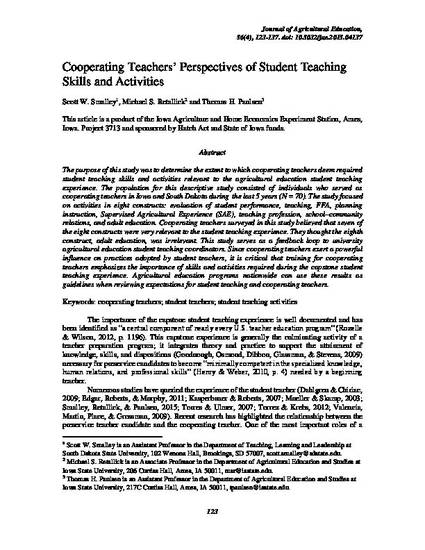
The purpose of this study was to determine the extent to which cooperating teachers deem required student teaching skills and activities relevant to the agricultural education student teaching experience. The population for this descriptive study consisted of individuals who served as cooperating teachers in Iowa and South Dakota during the last 5 years (N = 70). The study focused on activities in eight constructs: evaluation of student performance, teaching, FFA, planning instruction, Supervised Agricultural Experience (SAE), teaching profession, school–community relations, and adult education. Cooperating teachers surveyed in this study believed that seven of the eight constructs were very relevant to the student teaching experience. They thought the eighth construct, adult education, was irrelevant. This study serves as a feedback loop to university agricultural education student teaching coordinators. Since cooperating teachers exert a powerful influence on practices adopted by student teachers, it is critical that training for cooperating teachers emphasizes the importance of skills and activities required during the capstone student teaching experience. Agricultural education programs nationwide can use these results as guidelines when reviewing expectations for student teaching and cooperating teachers.
Available at: http://works.bepress.com/michael-retallick/2/

This article is from Journal of Agricultural Education 56 (2015): 123, doi:10.5032/jae.2015.04137. Posted with permission.